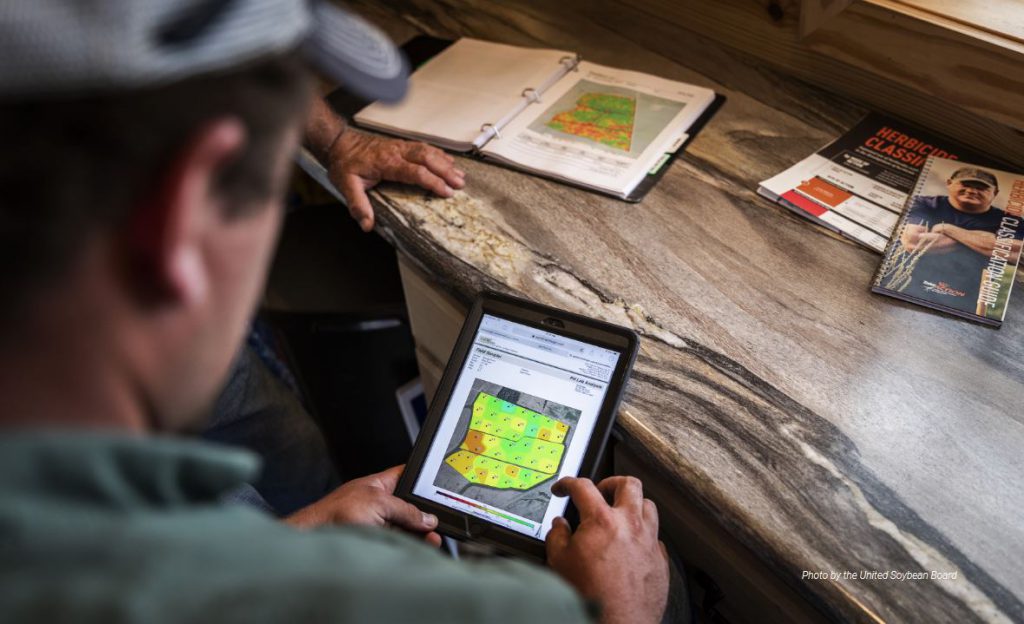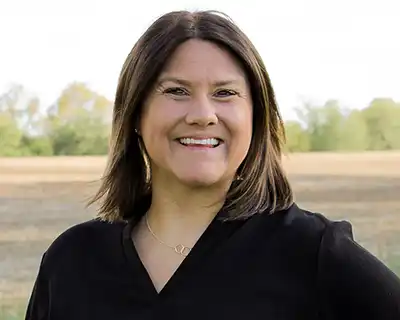A growing coalition of organizations across food, agriculture and conservation seeks to mirror the successes of the Human Genome Project, unlocking the potential of climate-smart agriculture with turnkey data compatibility and insights that help farmers reduce emissions, measure and analyze climate-smart ag benefits and reap the financial rewards of providing climate-smart solutions.
“AgMission is an important investment,” explains Sally Rockey, executive director of the Foundation for Food & Agriculture Research (FFAR), who will retire at the end of February. “We are trying to bring together the community around data and results that can elevate our ability to have farmers make the decisions they want to make about their farming practices to reduce greenhouse gas emissions and maintain their profitability.”
Launched in February 2020, AgMission is a project of FFAR alongside U.S. Farmers and Ranchers in Action and World Farmers Organization. FFAR, the organization created in the 2014 farm bill to increase public agriculture research investments and complement the U.S. Department of Agriculture’s research agenda, has committed $30 million to the initiative and must match every penny to spend it. So far, three organizations—PepsiCo, McDonald’s and The Nature Conservancy—have become Founding Partners and committed $5 million each, to be invested over a five-year period.
“This is really, in part, a Big Data project,” Rockey explains. “We want to be able to connect the data better together. Many groups have data. We want to connect those data so those data talk to each other. Based on that, we will define data gaps, and do different kinds of case studies out in the field to see whether this allows you to more quickly determine whether practices influence greenhouse gas production.”
Farmers stand to benefit in several practical ways, Rockey says.
First, precompetitive collaboration on AgMission surfaces solutions that save producers time, reducing the need to reenter the same data across multiple platforms. “We won’t build decision-support systems, but those out there will be able to take advantage of this incredible resource,” she notes.
Second, AgMission will work toward a more unified standard for data governance in agriculture — not a specific data-use agreement form, Rockey says, but “some tenets that all of us in the community can use to govern farm level data and protect the privacy of data.”
Third, AgMission data insights will enable farmers to engage with greater confidence in emerging ecosystem markets. Rockey points to the Ecosystem Services Market Consortium (ESMC), another initiative of FFAR, that will launch its new market for farmers three months earlier than anticipated in May 2022. “They are going to be a credit system for carbon, water quality and water quantity. It’s really, really exciting,” Rockey says. “All that comes back into play to AgMission. We won’t build the credit system, but we will strengthen the data the credit system uses to verify credits are achievable.”
Connectivity with USDA will strengthen the AgMission effort, Rockey says, and Secretary of Agriculture Tom Vilsack’s recent announcement the agency will invest $1 billion in climate-smart ag and forestry creates ample opportunities for collaboration.
“We work really closely with them,” Rockey explains. “That will also feed AgMission. We’ll feed them our information, they’ll feed their information to us, and we hope to have a really, really dynamic project in the end.”

Over the next decade, the organizers and Founding Partners of AgMission aim to have a major impact on agriculture domestically and around the world. “We’re having the National Academies of Science verify we can actually go negative if all goes well in the ag community,” Rockey notes. “We do have a footprint and produce between 9% and 13% of greenhouse gas emissions right now, depending on where you are. We want to reduce that footprint, but we also want a handprint. We want to mitigate greenhouse gas emissions, and that allows the whole community across different sectors to take advantage of what agriculture is doing.”
Rockey, who retires at the end of February 2022, views her time at FFAR as the “cherry on top” of her 40-year career in U.S. agriculture and biomedicine. During her tenure, FFAR has grown from a staff of three to an organization of 35 people. She plans to stay involved in ag science, including some consulting work and board service, and she will focus in particular on promoting the next generation of scientists in agriculture and medicine.
From her perspective, AgMission is a centerpiece of the Foundation’s mission with outsized potential to make a difference.
“I’m hoping people around the world will join us in this great endeavor and make it everything we dream it could be,” Rockey says.



